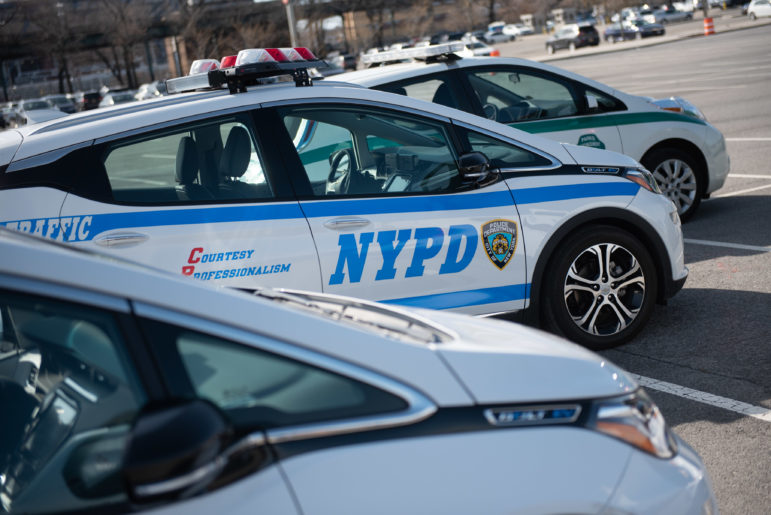“In New York, prosecutors often require a person accused of a crime to waive their right to later appeal their case as part of a plea offer, even if new evidence is later revealed. These waivers prevent appellate courts from reviewing police misconduct and overseeing police accountability.”

Michael Appleton/Mayoral Photography Office
In December, the New York City Council Committee on Public Safety held a hearing on the New York Police Department’s practice of “stop-and-frisk” and other investigative encounters, in the wake of the “How Many Stops Act” going into effect this summer. At the hearing, we heard from many New Yorkers who detailed their personal experiences being racially profiled, harassed, and abused by NYPD officers. Rarely did any officers face accountability.
In 2013, a federal court issued the landmark Floyd decision that found the NYPD’s racially-biased practice to stop, question, and frisk Black and Latine New Yorkers was unconstitutional. In her ruling, Judge Shira Scheindlin ordered a number of reforms and instituted a federal monitor to track the NYPD’s progress in implementing them. Unfortunately, we have seen that NYPD’s racist, abusive and illegal practice has continued in the decade since, and little has been done to hold the officers who engage in misconduct to account.
The NYPD’s lack of accountability became especially evident upon the release of an in-depth report recently issued by a member of the federal monitor team, retired judge James Yates, on the department’s policies and practices surrounding the discipline of officers who have engaged in misconduct during stops.
Yates’s report explains in great detail that despite dedicated NYPD resources to investigate misconduct in stops, questions, searches, and frisks, it is exceedingly rare that any officers face discipline for this misconduct, even if such misconduct has been substantiated by the Civilian Complaint Review Board (CCRB). This problem goes all the way to the top, with Yates noting that various police commissioners often used their power to reduce or dismiss penalties against officers found to have engaged in misconduct. This egregious lack of accountability allows the abuses of stop-and-frisk to continue nearly unfettered.
As public defenders, we have a powerful tool to hold police accountable for illegal stops and searches, but a common prosecution practice often stands in the way.
Given the NYPD’s history of racial bias and illegal searches and seizures, it is critical that we pay close attention when evidence in a criminal prosecution—identifications, statements, or physical evidence—arises from illegal police searches and seizures, police-arranged identification procedures, or police interrogation tactics.
Preventing the prosecution from using illegally obtained evidence against a person in court (aka suppression of evidence) is one of the strongest mechanisms to curtail this misconduct. If the police have obtained evidence illegally, defense attorneys can argue that if the police illegally stopped and frisked someone or illegally interrogated them, the evidence obtained as a result cannot be used to prove they committed a crime.
In New York, prosecutors often require a person accused of a crime to waive their right to later appeal their case as part of a plea offer, even if new evidence is later revealed. These waivers prevent appellate courts from reviewing police misconduct and overseeing police accountability. It is well known that the majority of criminal cases resolve with pleas, making this practice widespread.
Legislation pending in Albany would prevent plea offers from being conditioned on a waiver of appeal of suppression issues. The bill would restore the power of appellate courts to review police misconduct, protecting people who have been accused of crimes against wrongful convictions and violations of their constitutional rights. Restoring access to appellate review, even in cases that are resolved with a plea, would ensure greater access to justice and facilitate court efficiency.
Appellate courts not only have the ability to overturn lower court decisions about officer misconduct, but appellate court decisions also have broad influence, signaling that similar officer misconduct will result in evidence suppression. We urge the legislature to take action on this bill this session.
Of course, this legislation is only one piece of dismantling the racist and abusive practice of pretextual stops and officer misconduct. We must also end the use of surveillance technologies that perpetuate stop-and-frisk, such as the NYPD’s Gang Database and Shotspotter. We must end “specialized” rogue units like Neighborhood Safety Teams that engage in a startling amount of illegal stops. And we must give the CCRB more power to hold officers accountable, as it is clear the NYPD is unwilling to police itself.
Yung-Mi Lee is the director of law and appeals at Brooklyn Defender Services.








